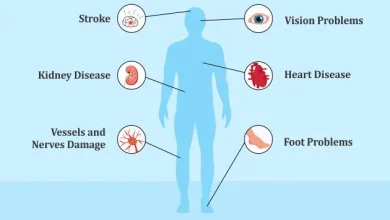Nutrition Tips for Life After Bariatric Surgery

For recovery and long-term success following bariatric surgery, appropriate nutrition is crucial. To maintain muscle mass and aid in recovery, prioritize foods strong in protein. To accommodate your smaller stomach, eat small, frequent meals and chew your food well to facilitate digestion. Steer clear of foods high in fat, sugar, or carbonation, as these can induce dumping syndrome or other discomfort.
Drink water throughout the day to stay hydrated, but refrain from doing so right before meals. To avoid deficits, take the prescribed vitamin and mineral supplements. To guarantee a balanced diet, keep track of the foods you eat. To maintain a healthy lifestyle after surgery, adhere to your doctor’s instructions and show up for follow-up appointments.
1. Diet Progression After Bariatric Surgery
Clear Liquids
Water, broth, sugar-free gelatin, and electrolyte drinks are all part of the clear liquids phase following bariatric surgery. This stage reduces the amount of stress on your digestive system, promotes healing, and keeps you hydrated.
complete Liquids
Smooth yogurt, milk, protein drinks, and low-fat soups are all included in the complete liquids phase. As you recuperate from bariatric surgery, it is kind to your digestive tract and offers vital nutrients.
Soft Foods
Ground meat, cooked vegetables, eggs, and soft fruits are examples of soft, readily chewable foods that fall under this phase. After bariatric surgery, it supports digestion and eases the adjustment to regular eating.
Regular Diet
Small quantities of nutrient-dense, well-balanced meals are part of the normal diet phase. To promote long-term health following bariatric surgery, steer clear of foods rich in fat, sugar, or carbonation and instead concentrate on protein, veggies, and whole grains.

2. Maintaining Healthy Habits After Bariatric Surgery
Prioritize Protein
Protein is crucial for healing, preserving muscle mass, and promoting general health following bariatric surgery. Every meal should include high-protein meals such as lean meats, eggs, fish, beans, and low-fat dairy. In order to control portion sizes and avoid overeating, protein helps you feel satiated for longer. To guarantee the best possible recovery and long-term success, try to meet your healthcare provider’s suggested daily protein consumption.
Avoid problematic foods
Avoid Problematic Foods Sugary, fatty, and carbonated foods might cause discomfort, weight gain, or digestive problems after bariatric surgery. Additionally, these foods can produce dumping syndrome, which manifests as nausea and other symptoms. For optimal health results, stick to foods that are high in nutrients and easy to digest.
Exercise Regularly
To sustain weight loss, enhance muscle tone, and improve general health following bariatric surgery, regular physical activity is essential. As your body adjusts, progressively increase the intensity of your activities, starting with mild ones like walking. Strive for a well-rounded regimen that includes strength training, flexibility, and cardiovascular activities.
Practice mindful eating
Indulge in Mindful Eating Mindful eating entails listening to your body’s hunger signals, eating deliberately, and giving your food your whole attention. Following bariatric surgery, this promotes healthier food choices, enhances digestion, and helps avoid overeating. Chew carefully, take little nibbles, and savor every meal.
Stay Hydrated
To avoid overfilling your stomach, refrain from drinking water during meals but do so throughout the day. Following bariatric surgery, drink carefully and strive for at least 64 ounces of fluids per day to assist digestion and general health.
Does health insurance cover bariatric surgery?
Bariatric surgery may be covered by insurance, but coverage depends on your insurance plan and specific criteria. Many health insurance plans cover bariatric surgery if it is medically necessary, typically for individuals with a body mass index (BMI) of 40 or higher or a BMI of 35 with diseases like diabetes or high blood pressure that are linked to obesity.
Insurers may also require documentation of previous weight loss attempts and participation in a supervised weight loss program. It’s important to check with your insurance provider to understand the specific requirements and coverage details for bariatric surgery.
Conclusion
In summary, long-term success and general health following bariatric surgery depend on maintaining appropriate nutrition. To meet your body’s demands, eat modest, well-balanced meals, prioritize protein, and drink enough water. Steer clear of sugary, fizzy, and high-fat foods to avoid problems and guarantee successful weight loss. To avoid deficiencies, take the vitamins and minerals that are advised, and cultivate good eating habits by practicing mindful eating. Your journey will be further improved by routine exercise and follow-up care with your medical team. Following these dietary recommendations can help you have long-lasting advantages and enhance your quality of life after surgery.
FAQs
1. What types of foods should I eat after bariatric surgery?
Eat more high-protein foods, such as lean meats, eggs, fish, tofu, and low-fat dairy, after bariatric surgery. Incorporate small servings of healthy grains, fruits, and soft, cooked veggies. Steer clear of sugary, greasy, or fizzy foods and go for nutrient-dense, easily digested foods. Make staying hydrated a priority by drinking water all day long.
2. What types of foods should I avoid after bariatric surgery?
Foods that are uncomfortable or hard to digest should be avoided after bariatric surgery. These include greasy and fried foods, as well as high-sugar foods like sweets and sugary drinks, which can cause dumping syndrome. To maintain healthy digestion and encourage long-term weight loss, one should also limit large amounts of tough meats, fibrous vegetables, and processed foods high in fat and sodium.
3. What other nutrients are important after bariatric surgery?
Essential nutrients following bariatric surgery include calcium, vitamin D, iron, vitamin B12, folic acid, and fiber in addition to protein. These nutrients help with digestion, immune system function, red blood cell synthesis, energy levels, and bone health. To achieve these needs, proper supplementation is frequently necessary.



